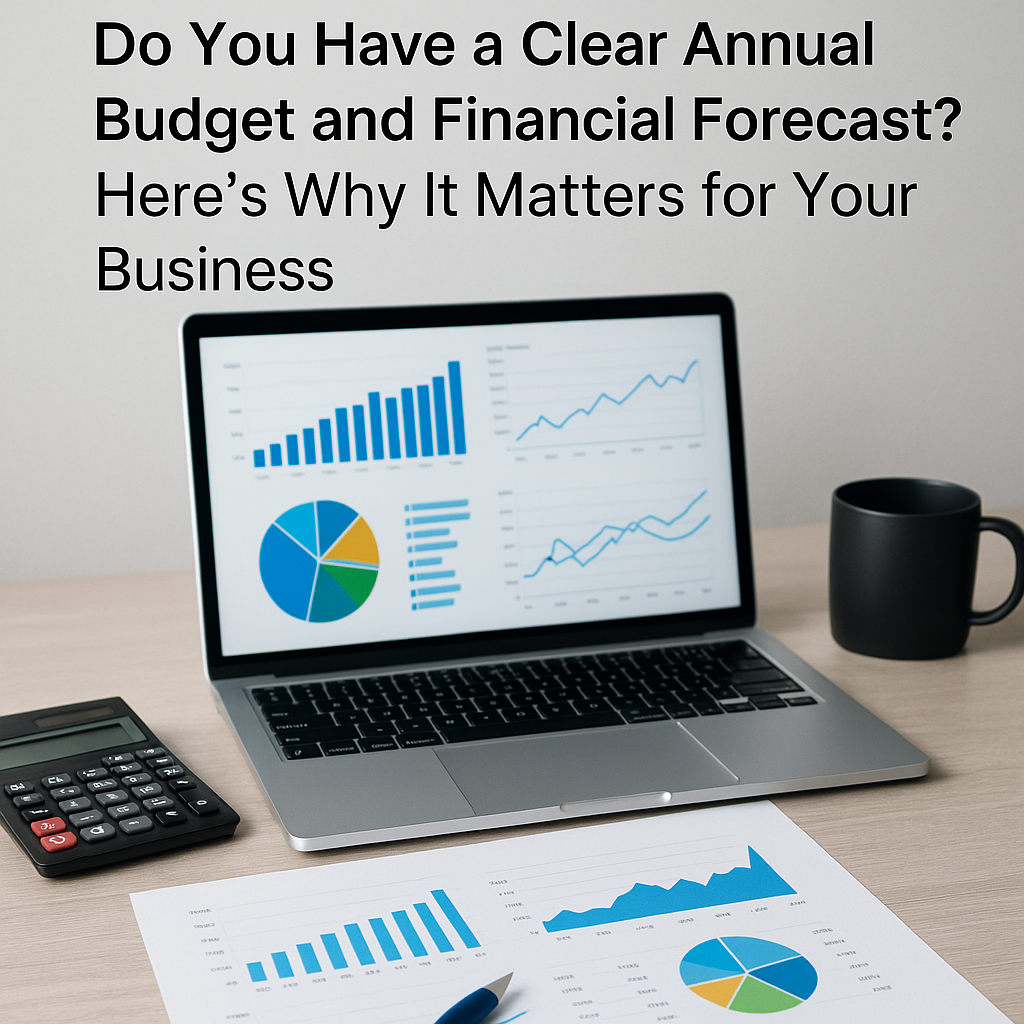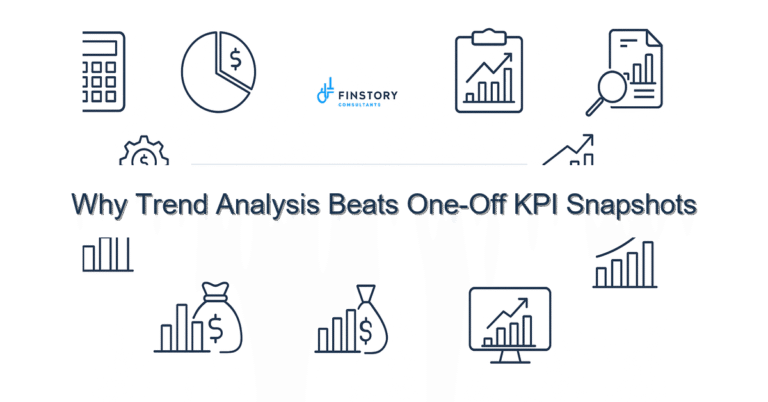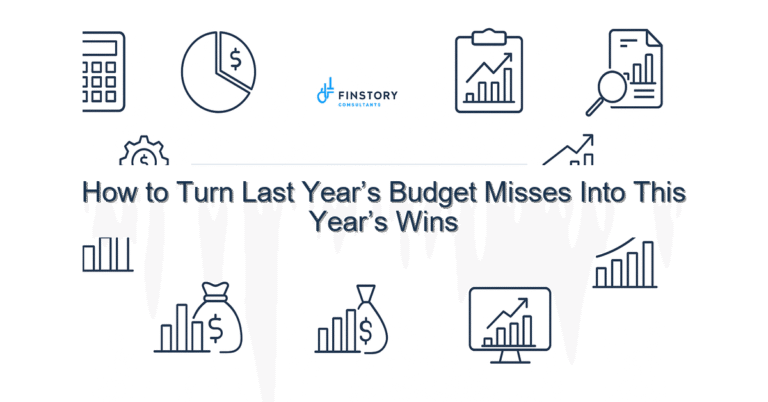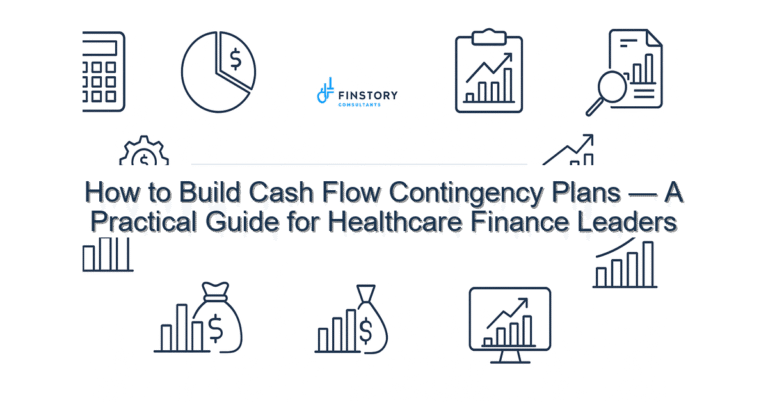Why Your Business Needs a Clear Budget and Forecast
Do You Have a Clear Annual Budget and Financial Forecast? Here’s Why It Matters for Your Business

Running a business can feel like juggling flaming swords while riding a unicycle. There’s always something demanding your attention—clients to serve, fires to put out, new opportunities to chase.
But there’s one question every business owner needs to answer honestly:
Do you have a clear annual budget and financial forecast?
If the answer is “not really,” you’re not alone. Plenty of business owners operate on gut instinct instead of solid numbers. But without a clear plan, you risk cash flow surprises, missed goals, or opportunities slipping through your fingers.
Let’s talk about why having a budget and forecast isn’t just for big corporations—and how you can put one in place without getting buried in spreadsheets.
Budget vs. Forecast: What’s the Difference?
First, a quick reality check: budgets and forecasts aren’t the same thing.
- Budget → Think of this as your financial game plan for the year. It sets targets for revenue, expenses, and profits—and gives you something to measure against.
- Forecast → This is your living, breathing projection of how things are shaping up based on real results. It adjusts as your business evolves.
Both tools are important. Your budget sets your direction; your forecast tells you whether you’re still on track—or if you need to pivot.
Why Bother with a Budget and Forecast?
Here’s why taking the time to create a clear budget and forecast is worth every minute:
1. Smarter Decisions
When you know your numbers, decisions become easier. Want to hire someone new? Launch a new product? Take on a big client project? Your budget and forecast help you see whether it’s financially smart—or if it might sink your cash flow.
2. Avoiding Cash Flow Nightmares
You could be profitable on paper and still run out of cash. A solid forecast helps you spot gaps before they become crises. It’s the difference between calmly planning for a slow month… and scrambling for emergency funding.
3. Building Credibility
Whether you’re talking to investors, banks, or potential partners, having a solid budget and forecast shows you’re running a serious business—not just winging it. It builds confidence and trust.
4. Spotting Red Flags Early
Maybe sales start dropping, or expenses creep up unexpectedly. A forecast helps you catch those trends before they spiral out of control, giving you time to course-correct.
How to Get Started
Creating a budget and forecast doesn’t have to be complicated. Here’s a simple starting point:
Look at Your History
Pull together data from the past year or two. Check revenue trends, seasonal patterns, and major expenses. The past is often your best clue to the future.
Set Realistic Goals
Be ambitious—but also honest. If you’re projecting 50% growth, make sure there’s a plan to achieve it, whether through new products, increased marketing, or team expansion.
Break Things Down Monthly
Annual numbers are helpful, but monthly figures give you a clearer picture of how cash flows in and out. This helps you plan for seasonal swings and potential shortfalls.
Update Regularly
A forecast isn’t “set and forget.” Review it monthly or quarterly. Compare your actual results to your plan and adjust as needed to stay on track.
Use Tools That Work for You
Even simple spreadsheets can work for smaller businesses. But cloud tools like QuickBooks, Xero, or more advanced platforms like Jirav or Planful can save time and reduce errors.
Where a Virtual CFO Fits In
If you’re feeling overwhelmed—or just tired of spreadsheets—a Virtual CFO can be a game changer. They help businesses:
- Build budgets and forecasts tailored to your specific needs
- Analyze financial results and provide strategic guidance
- Prepare for investor pitches, bank loans, or major growth plans
A good Virtual CFO isn’t just about the numbers—they’re your strategic partner for making smarter decisions.
Final Thoughts
So, back to the big question: Do you have a clear annual budget and financial forecast?
If not, there’s no better time to start. It doesn’t have to be perfect. Even a basic plan will give you more confidence, better decision-making power, and fewer sleepless nights worrying about your bank balance.
Your future self—and your business—will thank you.
Thinking about working with a Virtual CFO? Let’s chat about how to make your numbers work for you.






